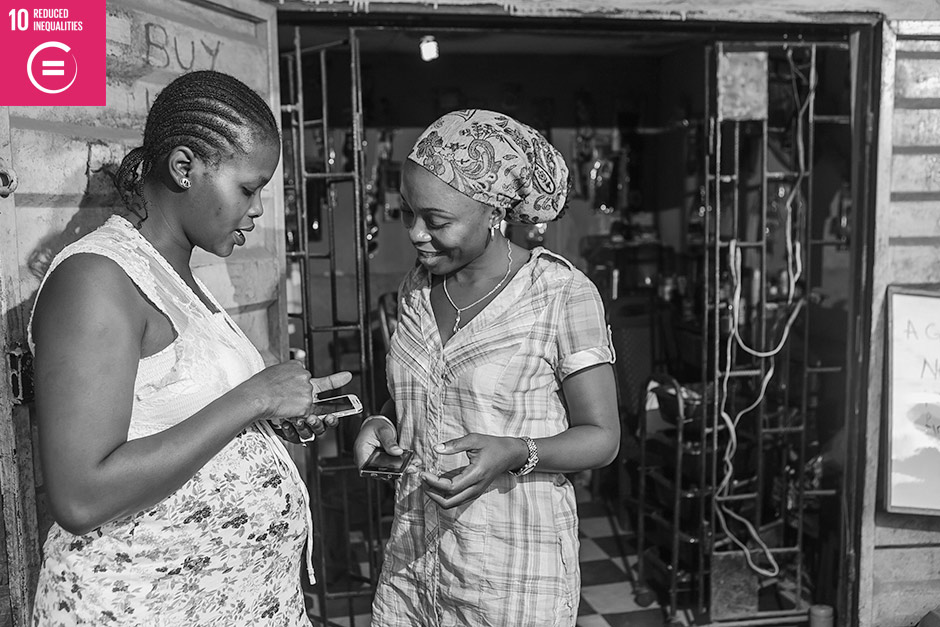
YTF partners with women in developing countries who often are the economic pillars of their community and who re-invest as much as 90% of their household income back into the health and education of their children. YTF believes that investing in women and girls is one of the highest return-on-investment opportunities in the developing world and that bringing more women into the labor force can provide a substantial boost to per capital income and GDP growth.
For many parts of the world, women and youth are excluded from such financial services as checking and savings accounts, credit and debit cards, loans, and access to financing for business development. Reasons for exclusion include lack of proof of identity, male-dominated bank or government policies, corruption, banking services not within proximity, or such infrastructural barriers as road availability, transportation, mobile/wireless accessibility, and power outages. In Sub-Saharan Africa, only 29.7% of the population has a financial account.[1] Fewer females and rural residents are financially included.
Kenya, though, has led the way in financial inclusion increasing from 42% of all residents in 2011 to 75% in 2014.[2] This is due to near 100% wireless coverage in Kenya and the introduction and use of mobile monies (M-PESA e-payment system) allowing residents to attain mobile bank accounts regardless of their location or gender.
At the same time, women continue to experience disparities in access to financial services. In Nigeria, for example, 44% of all residents are now financially included—a 50% increase from 2011 (29.7% to 44.4%). Although more women are now financially included (from 26% to 34%), the growth is due to an increase in male account ownership (from 33% to 54%)—furthering gender disparity.[3]
Women participation in the economy is primarily through entrepreneurial businesses, most of which are micro-, small-, or medium-sized enterprises (MSMEs). Although women entrepreneurs account for nearly half of the ownership of micro-enterprises, female ownership of small- or medium-sized enterprises (SMEs) drops with only 22.8% female ownership—a 90.4% disparity between female-owned and male-owned SMEs.[4]
Top barriers to business development in Nigeria, for example, are access to finance (30.2% of survey respondents) and electricity (27.2%). Access to finances is identified by 57% of firms with female top management as a major constraint—much more than firms with male top management (32%). Rejection of loan applications in Nigeria occurs 250% more often in firms whose top management is female (56%) than male (16%).[5]
YTF’s vision is a world where there is no economic and financial divide. Technology has a role to play in bridging this divide. In Sub-Saharan African, 43% fewer women than men are online,[6] limiting their potential and opportunities for entrepreneurial activities. YTF builds human capital through the development of innovative programs that use technology as a medium to educate, fight poverty, solve critical problems, stimulate entrepreneurship, and create a new generation of change leaders.
YTF’s programs such as Nigerian Women Entrepreneurs Mobile Value Added Services, She Will Connect, Mobile Financial Services for Women, Agric-P.O.W.E.R., STEM Education through YTF Academy and 3D Africa, and Affirmative Action and Politics for Women in Nigeria help women find ways to permanently lift themselves and their families out of poverty, and focus on helping women build sustainable businesses that provide stable and sufficient income for a lifetime, while leveraging appropriate technology and fostering financial independence.
Read More:
World Economic Forum Post: How to Promote Financial Inclusion in Nigeria
Huffington Post: Financial Inclusion: A Powerful Agent for Strong, Inclusive Growth in Development

